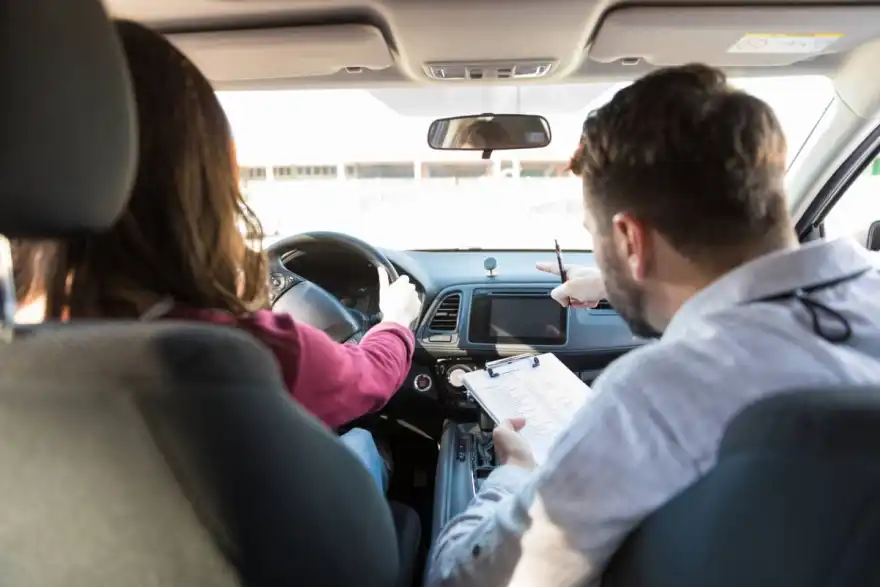
Driving examiners who are members of the Public and Commercial Services union plan to strike this month over a dispute on pay, pensions, jobs and redundancy terms. While theory tests are not affected, this strike could affect practical driving tests.
The strikes will happen between the 17th and 28th of April, with dates varying depending on the region. This means tests that fall between these dates will be pushed back or rescheduled, affecting hundreds of learner drivers.
The DVSA has also proposed that learner drivers who fail their test will need to wait 28 days before being able to book another.
Previously, learner drivers only had to wait 10 days to retake their test. Louise Thomas from Confused.com said: “With disruptions such as strikes and new regulations around waiting times, learner drivers may find their test dates set back.
This means some learner drivers who are otherwise ready for their practical test might want to consider practising with a friend or family member rather than continue with costly private lessons.
But in order to do this you must take out the correct learner driver insurance and know exactly what your policy covers before learning to drive with a friend or family member.
”To avoid delays to your driving test, Confused.com have put together their top 9 tips to help you save time and money when waiting for your driving test:
1. Apply for your provisional licence as soon as you can: In the UK, most people can’t learn to drive a car until they reach the age of 17. Despite this, anyone can apply for a provisional licence from the age of 15 years and 9 months. Although you might not be able to start learning until you are 17, frequent DVLA strikes may cause delays in application processing and provisional licence supply. For this reason, it’s a good idea to apply for your provisional licence as soon as you can, if you wish to start learning as soon as you turn 17. The quickest and easiest way to deal with DVLA is through their online services. You can apply for a provisional driving licence here.
2. Book your driving test in advance: With waiting times for a driving test reaching up to 6 months in some areas, booking your test in advance is essential. The DVSA advises on average it takes 45 hours of private lessons and 22 hours of practising with friends or family to learn how to drive. This guideline can be used to calculate the approximate date you should book your driving test.
3. Move your test if you are not ready: It’s important to follow the advice of your instructor and only take your test if you are ready, as if you fail you could have to wait 28 days before being able to retake it. You can move your test if you don’t feel ready. With the new DVSA proposal if you need to move or cancel your driving test you may need to do so at least 10 working days before the date, compared to the current limit of 3 working days.
4. Consider an intensive driving course: Intensive driving lessons are a good option if you want to obtain your licence as quickly as possible. These courses involve daily lessons typically between 2 and 5 hours long, with the course lasting around 2 weeks. A benefit of intensive driving courses is that often the wait time for a test slot is much lower than average, meaning you can take your test and pass much faster. This is because many intensive driving course providers have dedicated teams who are responsible for monitoring test cancellations everyday.
5. Look out for cancellations: Cancellation-finding apps such as Testi, Driving Cancellations NOW and Driving Test Genie offer notifications of when driving test slots become available due to cancellations. Using these apps could help you take your test sooner than the test date you have booked.
6. Make sure you have learner driver insurance: Rather than having costly private lessons, you might choose to learn with a friend or family member. If this is the case, you can ask them to add you to their policy as a named driver or take out your own insurance for their car. Insurance companies might give you a discount if someone more experienced is on your policy. However, if you are learning in your car, you should take out provisional car insurance.
7. Check that you are learning to drive with someone who is legally allowed: Check your policy conditions to ensure you are driving legally. For instance, some insurance companies require the person supervising you to be over 25 years old or to have held their driving licence for at least 3 years. The car you practise in also must have a valid MOT and car tax.
8. Lower the cost of learner driver insurance: The cost of your provisional insurance can differ based on your car’s make and model. A car with a small engine and no modifications may be cheaper to insure than an expensive sports car. Also storing your car somewhere safe and secure could bring down the cost of your cover and paying annually instead of monthly can eliminate interest building up.
9. Know the law: If you are learning to drive with a friend or family member to save on driving lesson costs, you must make sure you are following the law. To drive with a provisional licence on a motorway in the UK, you must be in a car with dual controls and have an approved driving instructor supervising you. It’s also essential to display learner plates on the front and rear of the vehicle you’re learning in. The plates must be visible to other drivers and not obstruct your view. If you are learning in someone else’s car, the L plates should be removed when any experienced driver is driving. You should also make sure never to drive without a qualified supervisor. If caught driving alone with a provisional licence, you could be fined up to £1,000 and given 6 points on your licence. This could mean that you pay more for your car insurance once you pass your test.




